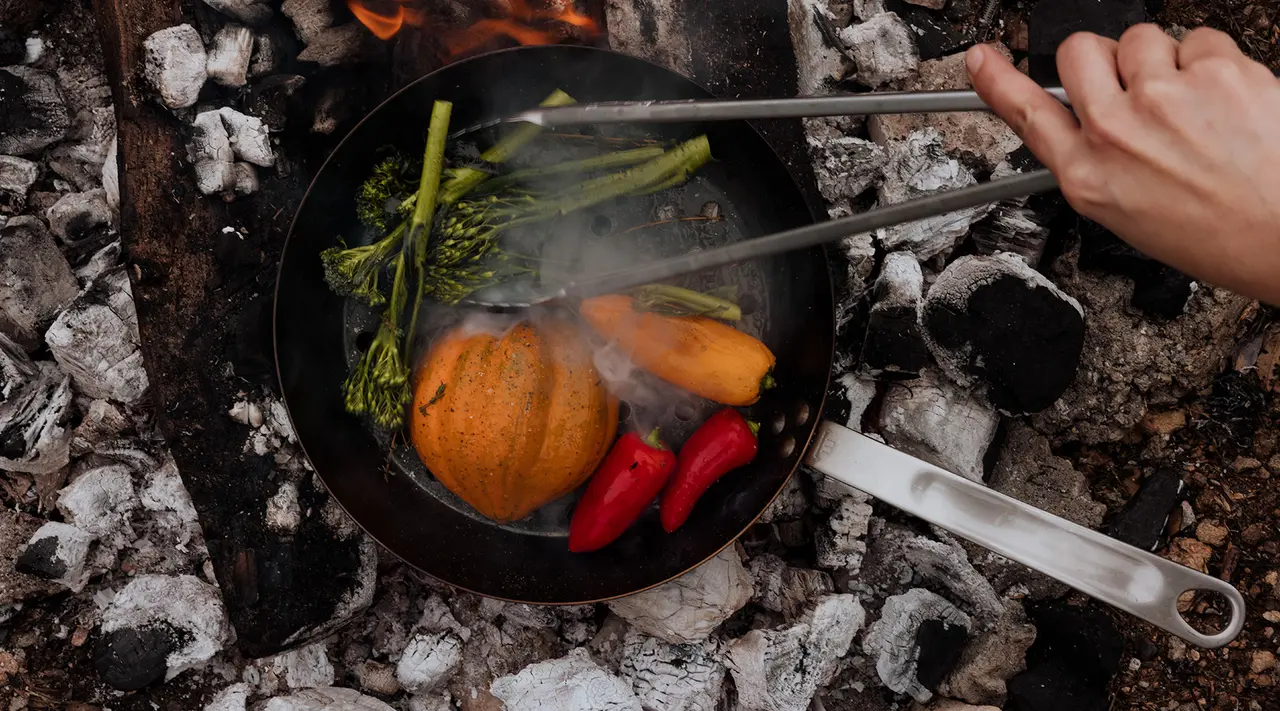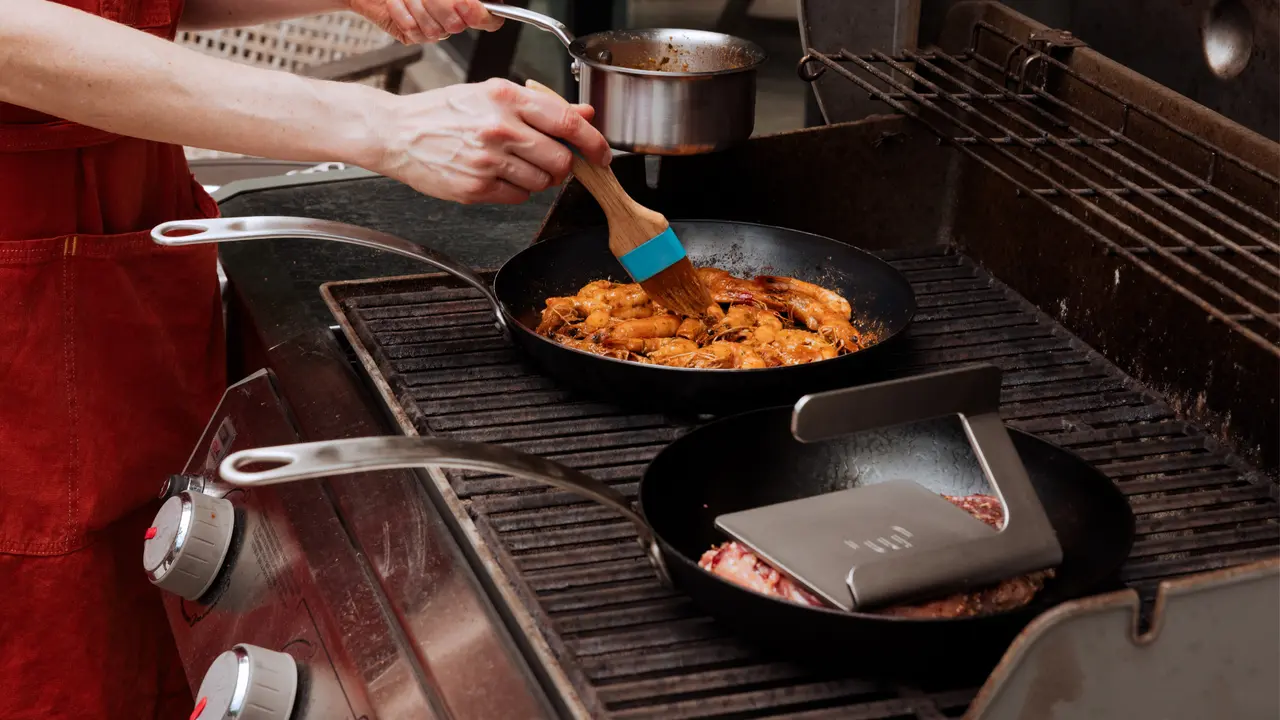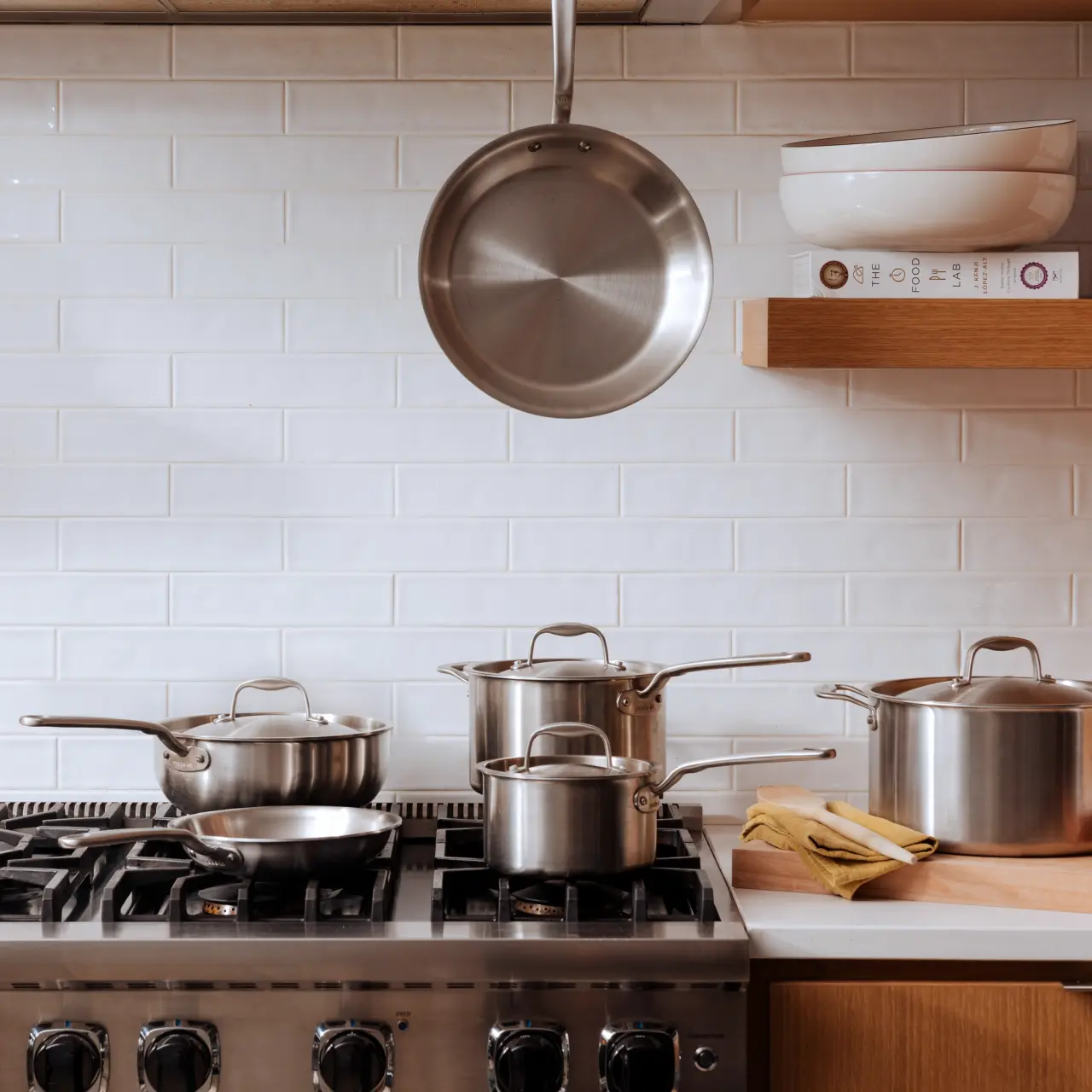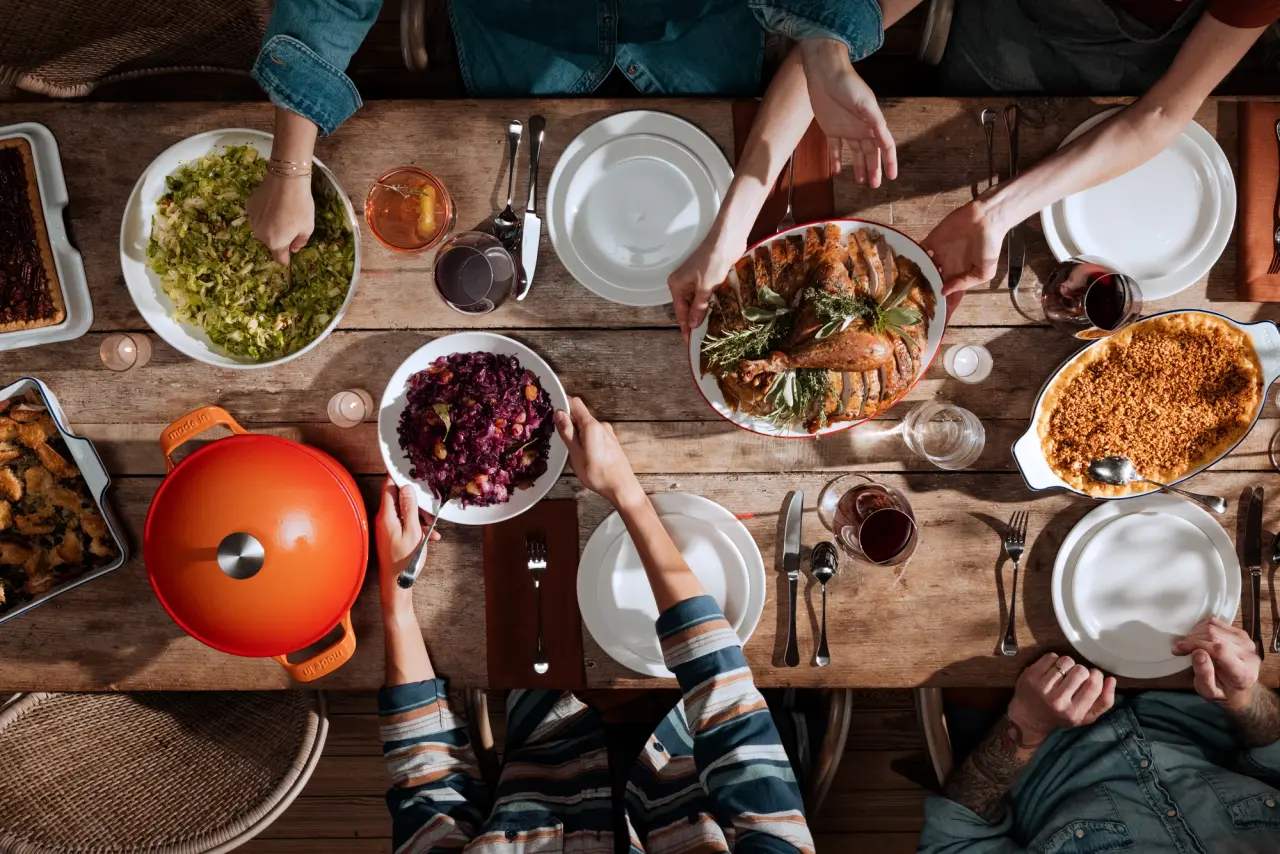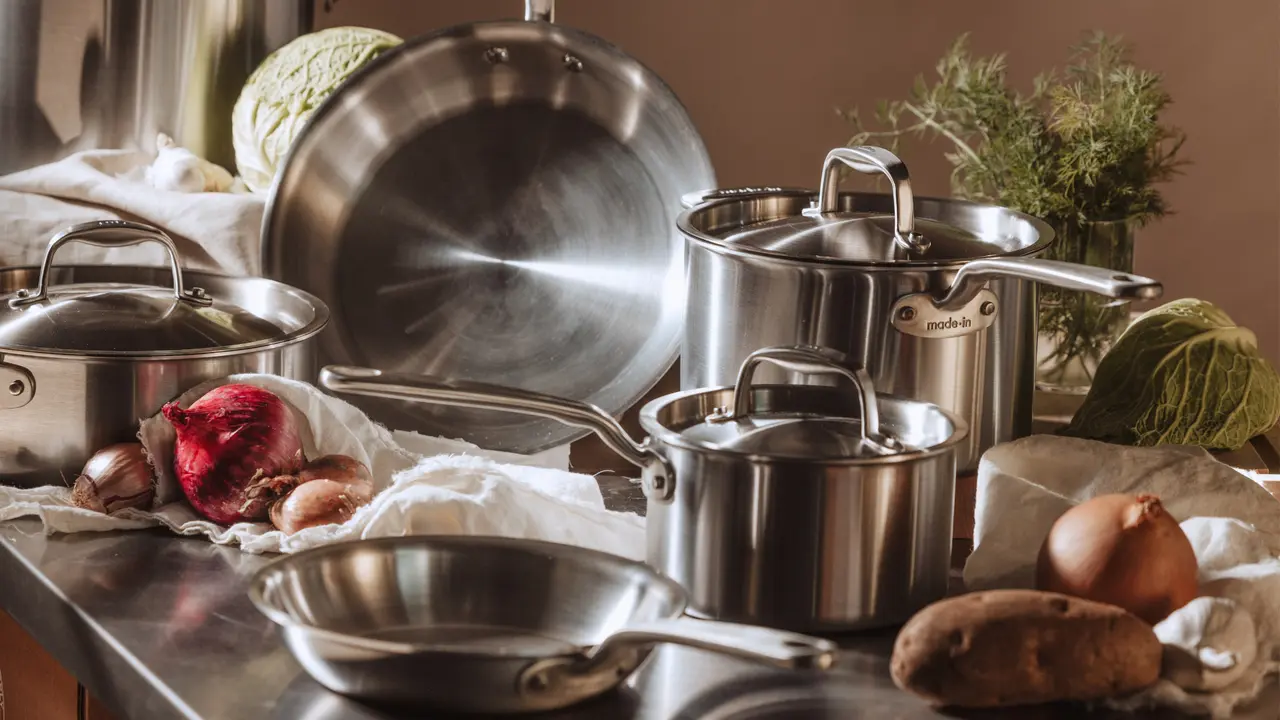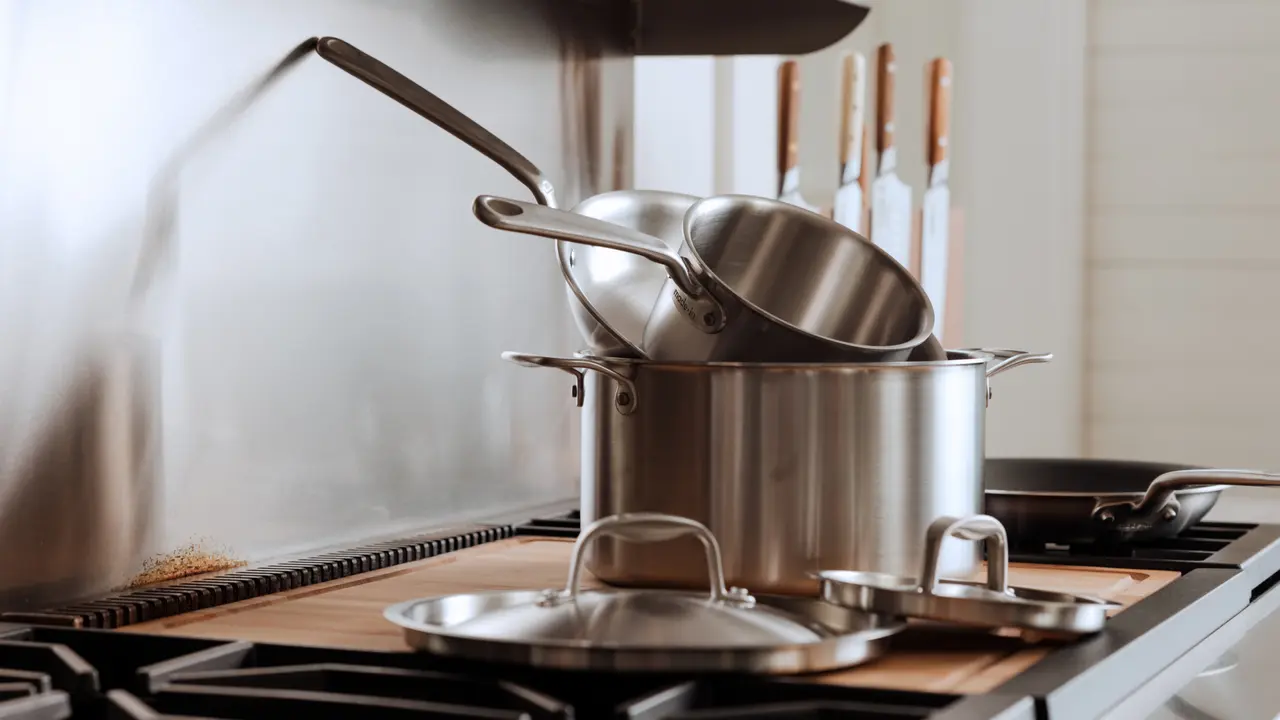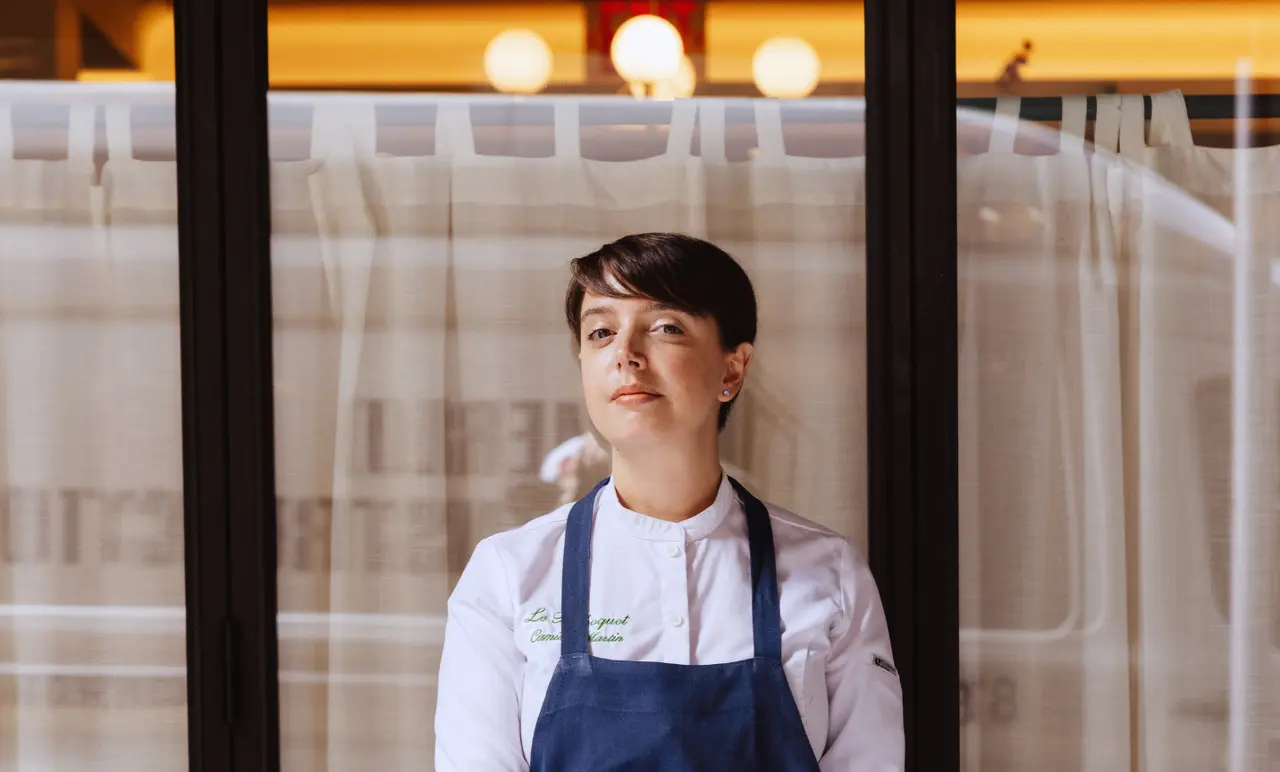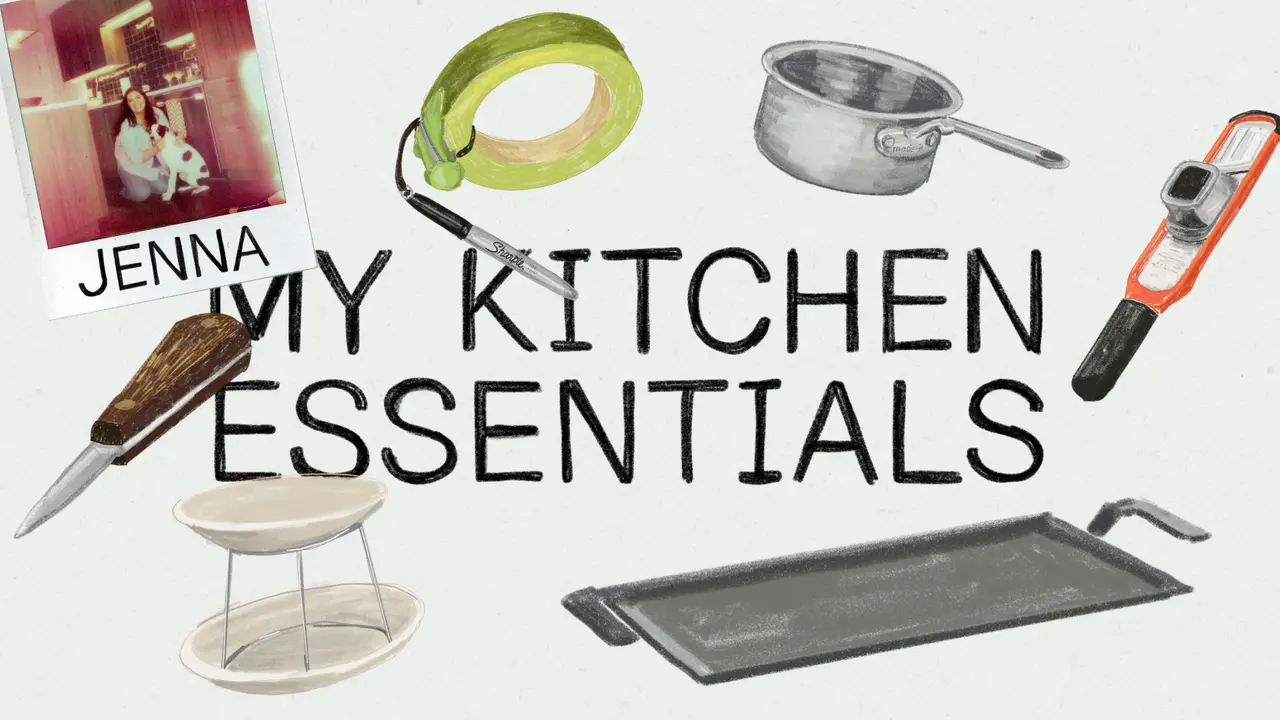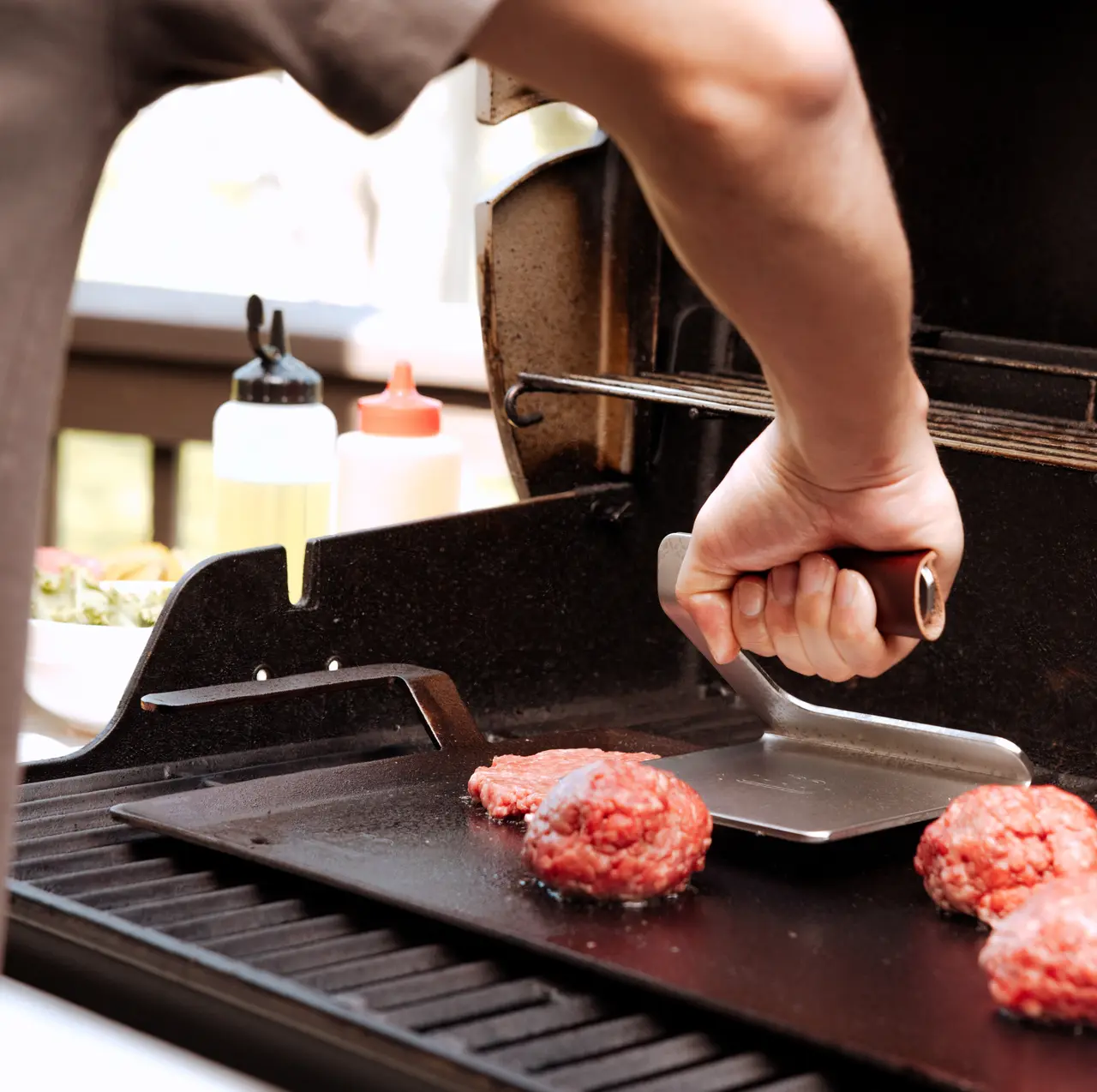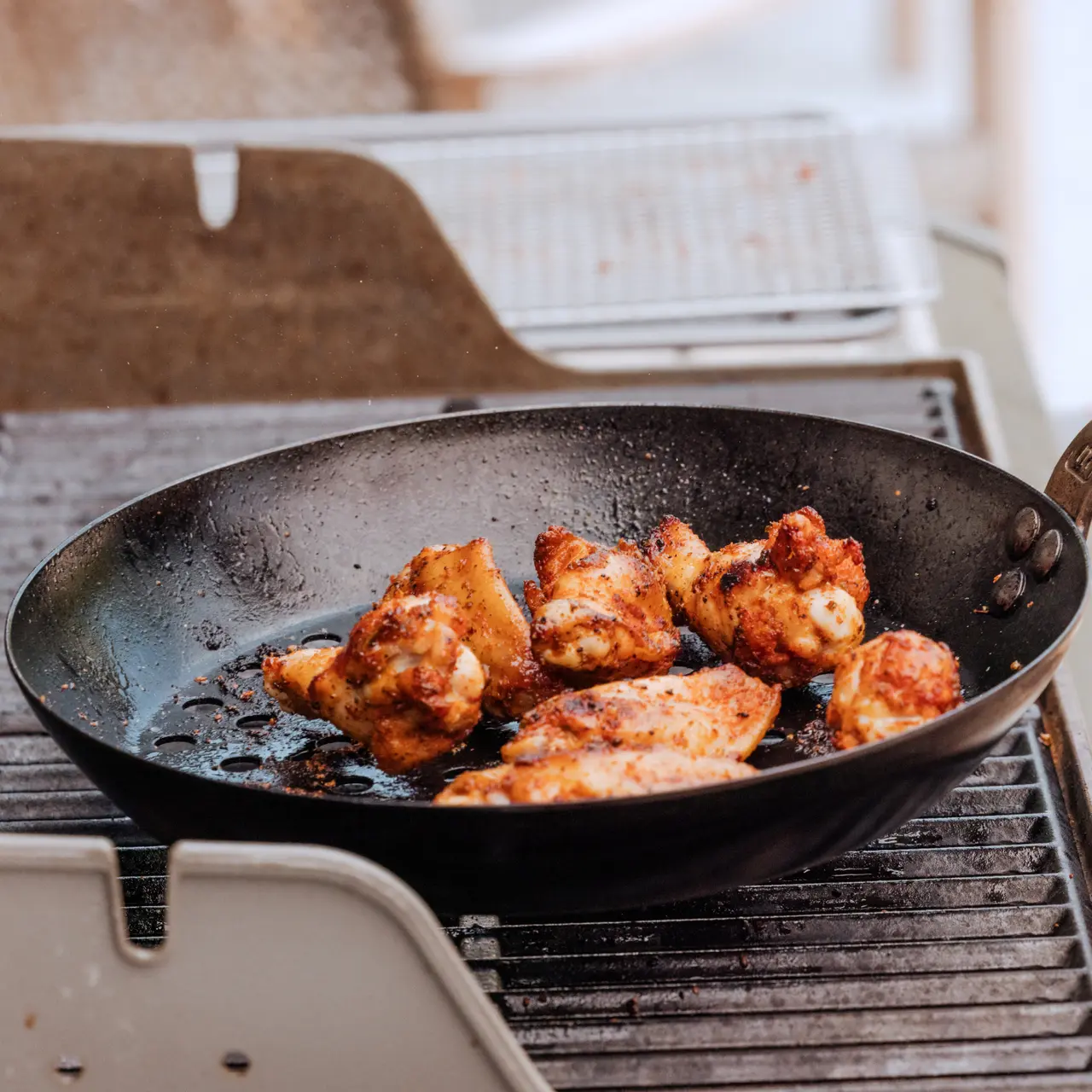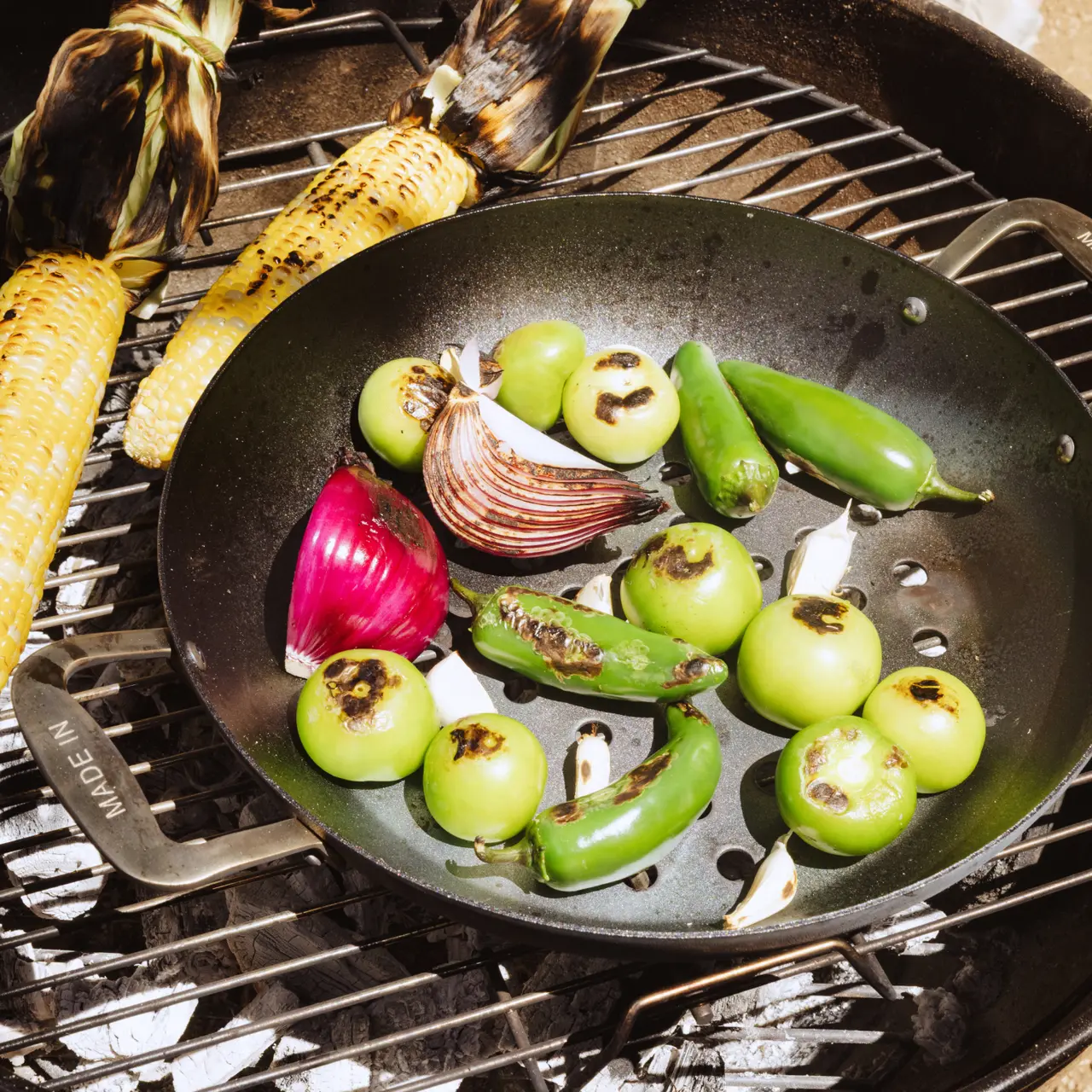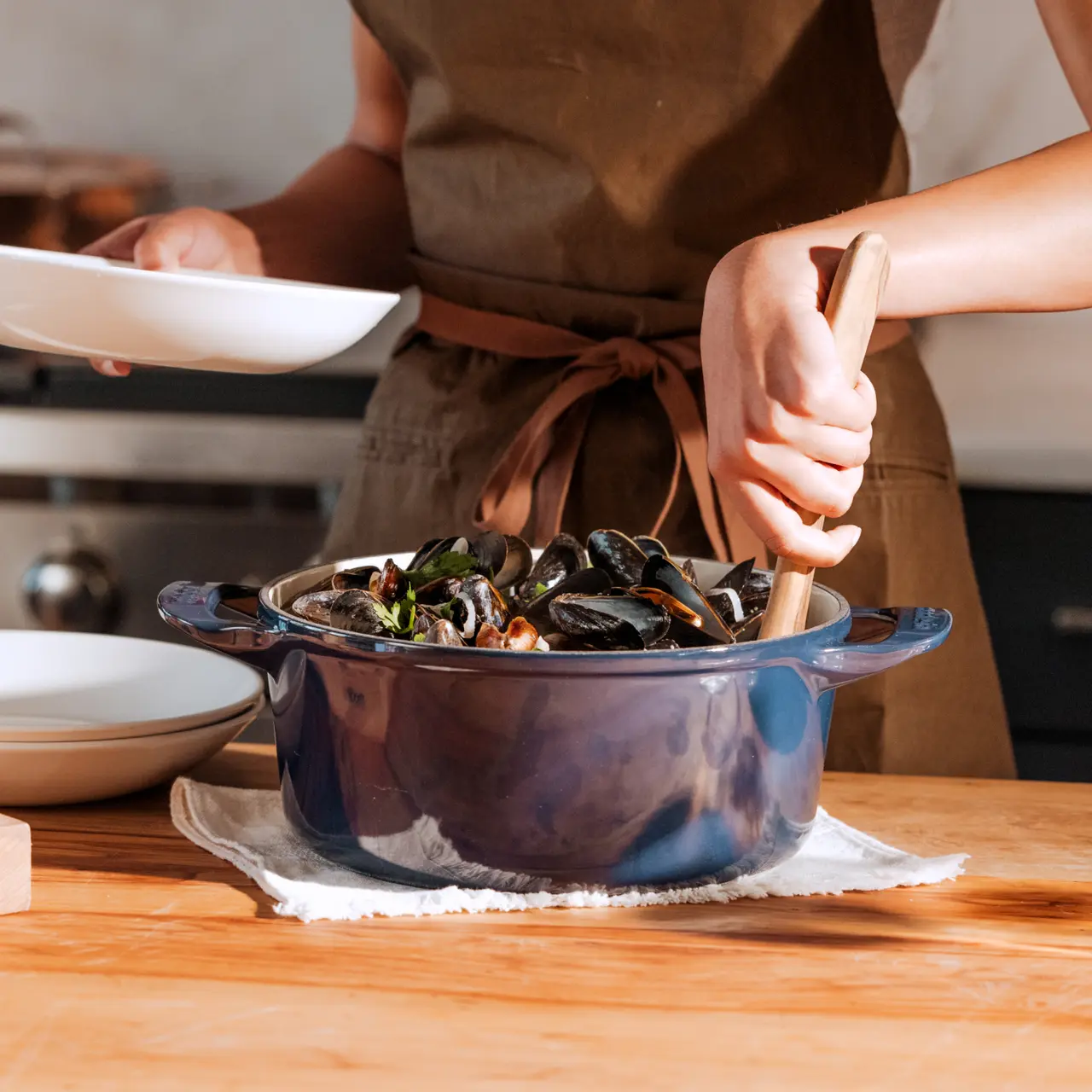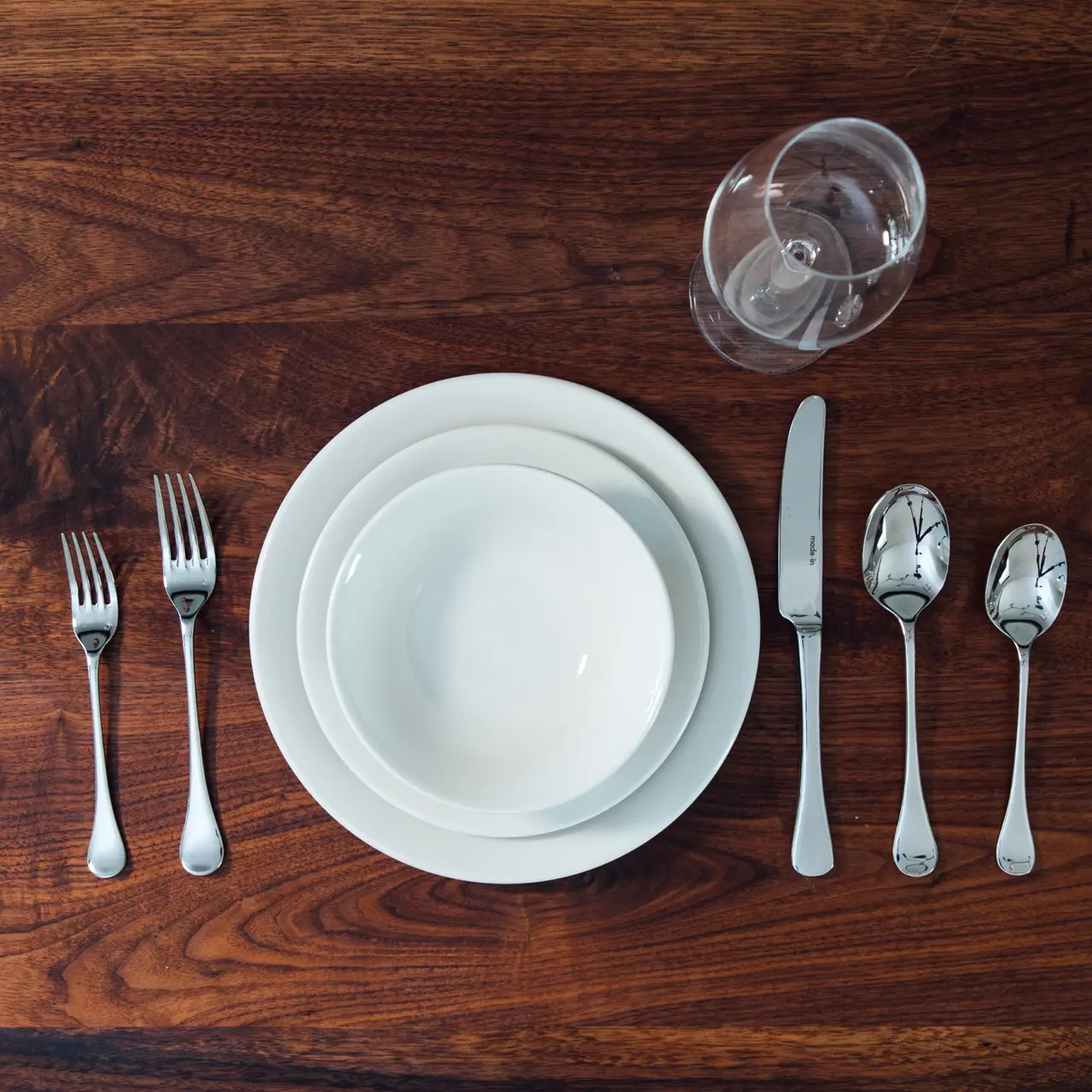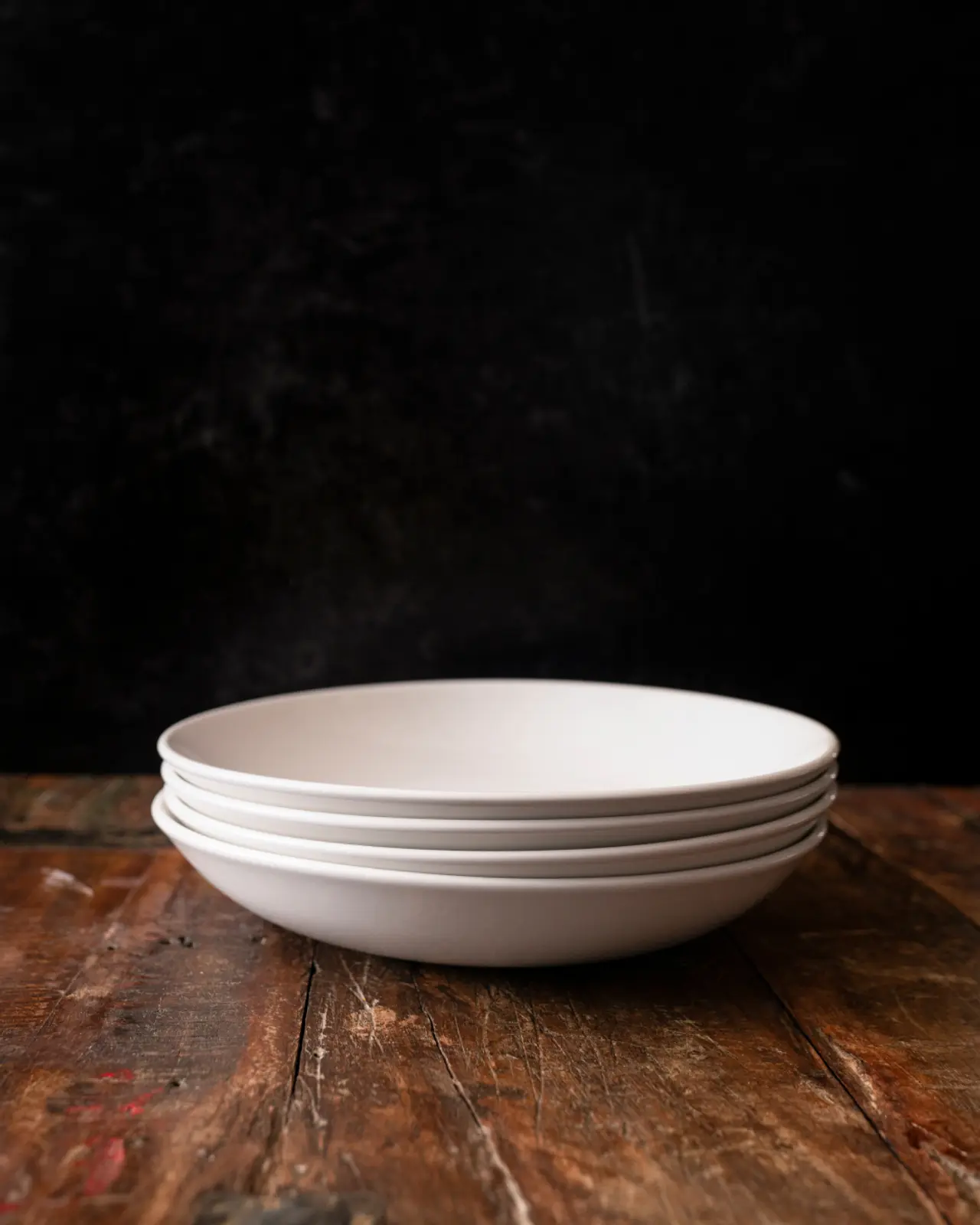“It’s about getting as much from the Hudson Valley as we possibly can, and then cooking it on a very simple setup—pretty much just a circle of rocks,” says Lee Kalpakis, a professional cook and recipe developer living in a converted van in the Hudson Valley region of the Catskills.
“We just went foraging for ramps, and I caught some striped bass yesterday,” she continues. And because it’s late spring and she lives in the woods not unlike the child protagonist in My Side of the Mountain, she also happens to have fiddleheads and fresh trout on hand.
Since her 2020 move from a rented loft in New York City to a 1976 Fleetwood Prowler van parked in a deciduous forest in Upstate New York, Kalpakis cooks almost every meal outside. Lately, she’s been cooking over oak logs, mostly because they’re around. “We had to take down a couple trees to build a house anyway,” she explains.
She and her partner Sean Cynamon, a professional carpenter, have been steadily building a 600-square-foot cabin located on a secluded plot boasting 100-plus acres of forest and mountain views as its backdrop. On building days, “we’ll start working on the house—picking up lumber or hanging doors or working on the interior walls—and we treat it like a job, we'll work 10 hours a day,” she says.
Six months ago they poured the foundation, and already their cabin has four walls, a roof, and doors. “The house is standing and everything is up to code,” she says. “It's so wild, and it's been a bumpy ride, but it's also been a really wonderful adventure.”
Pre-van in the woods, Kalpakis and Cynamon lived in Brooklyn. He built sets for Showtime and HBO, she was a video producer for Thrillist, a private cook with The Culinistas, and an assistant food stylist for Bon Appétit, Epicurious, and Delish, among other things. But when the pandemic hit and work dried up for both Kalpakis and Cynamon, they opted not to re-sign their lease. Instead, they purchased a vintage camper, moved to the woods, and downsized to a spartan kitchen consisting of a small fridge, a camper oven in its mid-forties that miraculously still works, a Yeti cooler, a well-worn fire pit, and little else.
While Kalpakis' time is largely spent building her future home, she still manages to fit in recipe development and food styling work. Plus, she's working on a cookbook to be published with Weldon Owen in Spring 2023. Naturally, it focuses on unconventional cooking setups and embracing open fire cooking regardless of where or how you live. With her limited setup, cooking over fire—as well as learning to understand and control it—has been a game changer.
According to Kalpakis, around 90-percent of what they’ve been eating recently has been prepared in their fire pit. “We wake up early and go outside to have coffee. Everything is outside, outside, outside,” she says.
"When I do something that is thought of as a stereotypically masculine act, well, I love doing that kind of stuff. Because why can't I?"
That said, Kalpakis is aware that open fire cooking has, at least in recent history, been pigeonholed and commercialized as an expression of masculinity. It’s the domain of suburban dads “manning” the grill, gauchos, and outdoorsmen. Initially, those associations left her hesitant to take on fire starting duties after the move. But her apprehension to work with fire limited her ability to cook the way she wanted to, and it feels good, she says, to overcome the bizarre ways internalized misogyny manifests.
“There are these designated roles, and cooking over open fire is intimidating because there's also an element of danger. But there came a moment where I realized it was important for me to feel comfortable working with it,” she says. “When I do something that is thought of as a stereotypically masculine act, well, I love doing that kind of stuff. Because why can't I? I've been watching men do certain things since I was little. It just feels really good to remind myself that I am capable, too.”
Lunch cooked over fire is typically quick—like a tartine with venison liverwurst and ramp aioli—but dinner is often more of a to-do, something like her striped bass stuffed with foraged ramps or charred chicken thighs with kale and olives. “I've gotten very good at lighting a fire since we started,” she explains. And to be clear, meals aren’t always this idyllic—there are plenty of “sad” meals, too.
“There were a lot of peanut butter and jelly sandwiches this winter while we were building,” says Kalpakis. “Like yes, we’ve been making breakfast over the fire because we're enjoying the weather and we love being outside, but microwavable burritos have saved many a cold morning.”
This aspect of her life, at the very least, is relatable.
“It makes me so happy to be able to live this way, out in the woods. [Cooking over open fire] isn’t something that I've been doing my whole life, but I've become absolutely obsessed,” Kalpakis says. Perhaps it’s in her blood—she comes from a culinary lineage, if not dynasty. On her father’s side, a great-great-grandfather “or whatever” sold meat pies at the World Fair, and a few generations later, her father opened Woodstock Pizza. “This is in the seventies, when Woodstock was Woodstock,” she says.
There’s an echo of Woodstock in her transition from city life to an off-grid camper. But, like the rest of her family, she is unwilling to forgo good food: “There are so many things that you have to sacrifice when living in a teeny tiny space, but I just wouldn't sacrifice cooking. I didn't stop cooking when we moved up here—I cook more now, even, and have become a better cook,” she says. “[Cooking over open fire] is so, I don't know, ancient. You know it's going to be delicious, because people have been doing it since the beginning of time.”
Ultimately, she says, the goal is not so much about achieving some masculine ideal of self-sufficiency, but about creating the most all-encompassing experience of food, cooking, and the outdoors. It’s about having agency and finding ways around the burnout and anxiety she felt in New York City, where she was constantly working to live.
“We’re never gonna get to a point where we're 100-percent sustainable. I'm not trying to do full-on homesteading,” she says. “I just want my bills to be small so that I can have time to do things that I really enjoy. For me, that's being outside and taking a long time to cook a meal.”
